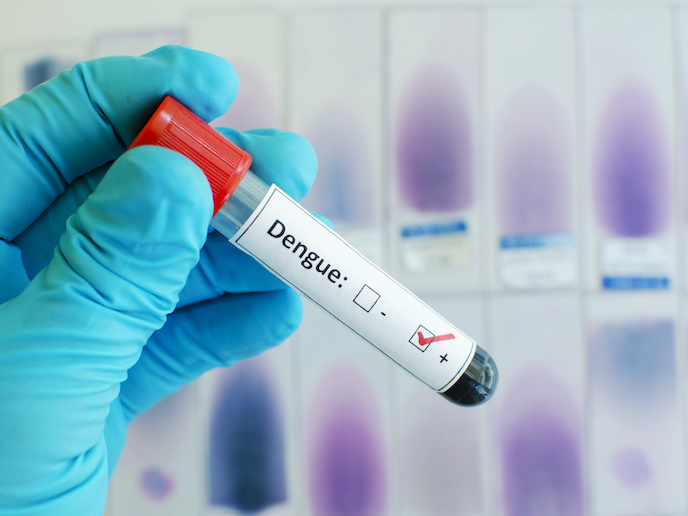Finding a cure for dengue fever
The dengue virus(opens in new window) (DENV) is transmitted via mosquito and causes the disease popularly known as dengue fever(opens in new window). It is prevalent in tropical and subtropical regions and can be found in over 130 different countries – meaning that almost half the world population is exposed to the virus. Each year, DENV infects over 390 million people. While the majority suffer only mild symptoms, over 500 000 develop severe illness with potentially deadly consequences. With increasing temperatures, urbanisation and international travel, the spread of DENV’s distribution and its infection rate are expected to increase – making the need for an effective vaccine and drugs all the more urgent. The EU-funded FINDER project is at the forefront of this effort. “Our project focused on the early identification of novel antiviral compounds that could be effective against dengue virus infections,” says Andrea Brancale, a professor of medicinal chemistry at Cardiff University(opens in new window). “We were interested in this specific virus because it is an infection with a clear, unmet medical need with no direct therapy or effective vaccination to treat it.” The research was undertaken with the support of the Marie Skłodowska-Curie Actions(opens in new window) and conducted by Giulio Nannetti, an individual fellow(opens in new window) of the programme.
Extremely encouraging results
In conducting the research, Brancale’s team, working in collaboration with researchers at the University of Padua(opens in new window), used a combination of computer-aided drug design methodologies, biochemical tools and cell-based antiviral assays(opens in new window). Whereas most research in this field focuses on designing traditional enzymatic inhibitors(opens in new window), this project stands out in that it focused on a non-traditional viral target: the interface between two viral proteins. “The idea of targeting a protein-protein interaction(opens in new window) has been widely used in the anticancer field but is still very much unexplored in the design of antiviral compounds,” explains Brancale. “In this sense, our project represents one of the first attempts to design anti-dengue compounds targeting a protein-protein interaction.” From this work, the FINDER team identified a group of molecular hits that, by targeting a protein-protein interaction, have the ability to exert an antiviral effect against DENV. “These results are extremely encouraging and will play a key role in supporting us as we continue our work in the future,” adds Brancale.
Work continues
Although the FINDER project is now over, the work continues. “I think we have a unique chance to carry our research forward to further support the idea of targeting viral protein-protein interaction for the discovery of new antivirals,” notes Brancale. Researchers are currently working to publish some of the project’s early results. Recently, they presented at conferences such as the International Conference on Antiviral Research(opens in new window) in Baltimore, United States, the 7th European Congress of Virology(opens in new window) in Rotterdam, the Netherlands, and the 4th Innovative Approaches for Identification of Antiviral Agents Summer School(opens in new window) in Cagliari, Italy. They are also exploring the possibility of further developing some compounds,with an eye to commercialisation.







